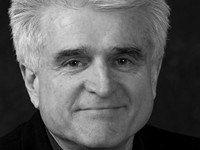I wrote in the two previous posts about the importance of exploring why we are change practitioners and shared some of the reasons I choose to be one. Now I’d like to make a case for change facilitation as a calling.
Our role as change practitioners grants us more than an opportunity to earn a living; it comes with responsibilities.
As the world becomes more complex and convoluted, the necessity for successfully addressing changes that matter grows in equal proportion. The ones that emerge during our era will leave footprints that our children and grandchildren will either benefit from or suffer through.
There are those who are rightfully concerned about the economic burden we are leaving for future generations to contend with. We should have an equal concern, however, for the change-related legacy we’ll leave. Some of the transitions we are currently facing, and others to come, have long-term implications and will have a direct bearing on life after ours is over.
Our timing couldn’t be better. We are change experts during an era when more transitions are being thrust upon our species than at any period in recorded history. The juxtaposition of our skills and the magnitude of disruption taking place means we’re perfectly positioned to foster a virtuous spiral that can have far-reaching significance.
Today, we are standing at the crossroads of two change-related futures facing humanity:
- A downward spiral, where people feel they are already drowning in shifts they can’t keep up with and are insecure about the next wave coming their way, which makes them even less capable of handling the impending load
- An upward spiral, where confidence about addressing approaching changes is built each time a current wave is successfully addressed
Either scenario could be our destiny and it’s possible that no more than modest influences will create the tipping point in one direction or the other. I believe our change facilitation profession is one of those modest influencers.
If not us, who will help guide people toward the knowledge and skills needed so that important changes have a greater likelihood of becoming reality? If not now, as so much is riding on solutions that could have a genuine impact on people’s lives, when will we step up to face our responsibilities?
Where Meaning Resides
Speaking for myself, there are many change initiatives to work on, but the ones that really make a difference keep me energized as a professional. As I see it, there are only three types of meaningful projects:
- Changes that matter
- Endeavors that help me practice my craft and sharpen my skills so I can perform at my best when changes that matter next appear
- Endeavors that offer me the opportunity to help other practitioners prepare themselves for the changes that matter, which they will have a chance to influence
I’m fortunate in that, generally speaking, I’m blessed with opportunities to pursue one of these three options. But there are times when I’m not. When this happens, it’s important to remind myself that the present work is not what I’ve dedicated myself to do.
That doesn’t make it wrong, nor does it prevent me from providing value to whomever I’m working with. It simply means I’m not aligned with my stated purpose for being in this profession and I need to get back to one of these three alternatives as soon as I can.
How About You?
Where your talents and the needs of the world cross, there lies your calling.
—Aristotle
Some of you may resonate with my answer to why being a facilitator of change is so important but I’m sure others will feel I’ve missed the mark, at least as far as you’re concerned. If this is true for you, it means you have a different set of higher-order outcomes that you are passionate about, which our profession allows you to pursue. This is as it should be. It is a diversity of passions about this work that gives it a collective depth, and not just a deeper meaning for us individually.
In this regard, the intent of this writing isn’t to create closure, it’s to open a dialogue…at least within yourself, if not with others. Do you feel being a professional change practitioner has a loftier purpose beyond employment, doing no harm, and accomplishing the specific initiatives you are asked to facilitate? Is there a greater good you hope to accomplish by engaging in this work? Is there is a larger justification for you being part of this profession?
If your answers are consistently yes, I encourage you to be as specific as you can with yourself about what your purpose is and then share as much as you dare with colleagues. Let’s be personally clear about where True North is for each of us and let’s join forces if we find that others have similar aspirations.



